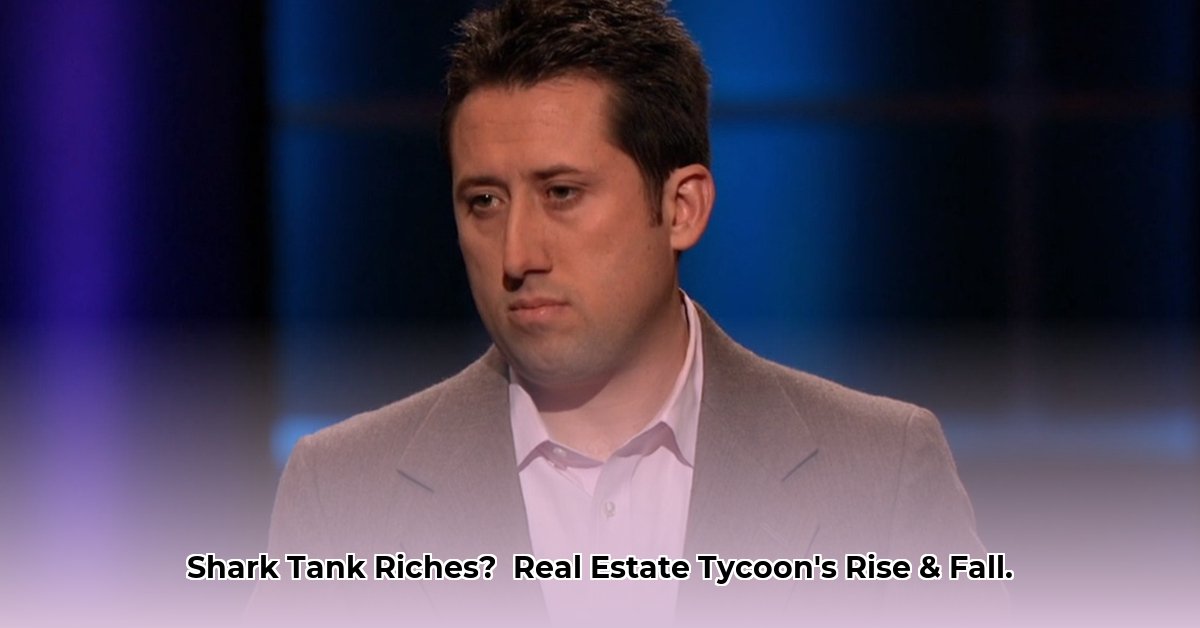
The meteoric rise and equally swift fall of Tycoon Real Estate (TycoonRE) offers a compelling case study in the complexities of the real estate crowdfunding market. While precise financial data remains elusive, the company's trajectory, from a Shark Tank appearance to eventual acquisition and ultimate demise, provides valuable lessons for entrepreneurs and investors alike. For more on Shark Tank success stories, check out this Cinnaholic's journey. This analysis unpacks TycoonRE's journey, highlighting key takeaways and actionable strategies for navigating the risks inherent in this dynamic sector.
The Shark Tank Effect: A Temporary Surge
TycoonRE's appearance on Shark Tank triggered a significant surge in website traffic, demonstrating the show's potent marketing capabilities. This short-term success, however, proved unsustainable. While the increased visibility undeniably generated excitement, it failed to translate into a lasting foundation for long-term profitability. The key question arises: Did this initial boost mask underlying vulnerabilities in the TycoonRE business model?
Acquisition: A Masking of Deeper Issues
Following its Shark Tank appearance, TycoonRE was acquired by a consortium of crowdfunding platforms. While this acquisition seemed to validate the company's potential—with estimated valuations reaching approximately $1 million—this success was ultimately a temporary illusion. The lack of transparent post-acquisition financial data makes it challenging to ascertain the true value of the deal, and whether it actually addressed the problems existing within TycoonRE's business model.
The Decline: Unraveling the Causes of Failure
Several factors contributed to TycoonRE's eventual failure. The unsustainable nature of the Shark Tank boost amplified the company's inherent weaknesses. Its business model, while potentially innovative, lacked the resilience needed to navigate the competitive real estate crowdfunding landscape. The lack of readily available financial data prevents definitive conclusions on its financial health, but operational and market challenges undoubtedly played a significant role. The absence of detailed financial records underscores the importance of robust bookkeeping and transparent financial disclosure in any business venture.
Lessons Learned: Building a Sustainable Business
TycoonRE's failure serves as a cautionary tale, emphasizing several crucial lessons for entrepreneurs in the real estate crowdfunding space:
Diversify Funding Sources: Relying on single investors or funding streams creates significant vulnerability. A diversified approach mitigates risk and provides stability during challenging periods.
Develop a Resilient Business Model: A successful business model requires more than just initial excitement. It must be strategically designed to thrive long-term and withstand market fluctuations.
Conduct Thorough Due Diligence: Impulsive decisions based on short-term gains are risky. Meticulous market analysis and comprehensive due diligence are paramount for identifying potential challenges and mitigating risks.
Navigating the Risks: A Real Estate Crowdfunding Risk Assessment Matrix
The real estate crowdfunding industry is inherently risky. Understanding these risks and mitigating them effectively is crucial for long-term success. The following matrix highlights some key risks and potential mitigation strategies:
| Risk Factor | Likelihood | Impact | Mitigation Strategy |
|---|---|---|---|
| Regulatory Changes | Medium | High | Proactive legal counsel; adaptable business model |
| Market Volatility | High | High | Diversified investment portfolio; robust risk management |
| Technological Disruption | Medium | Medium | Continuous innovation; technological adaptability |
| Competition | High | Medium | Differentiation through niche market focus; superior service |
The Enduring Legacy and Transformation
While TycoonRE ultimately failed as a standalone entity, its core concepts were not entirely lost. The acquisition allowed for the integration of its key ideas into a successor venture, preREO, focusing on discounted mortgage investments. This highlights the importance of adapting and refining business models based on lessons learned from failures allowing for sustainable long-term growth.
How to Avoid Tycoon Real Estate's Pitfalls: A Practical Roadmap
Develop a Robust Business Plan: A well-defined plan, encompassing market analysis, risk assessment, and contingency strategies, is paramount.
Diversify Funding: Secure funding from diverse sources to mitigate risks and ensure stability.
Proactive Regulatory Engagement: Compliance and transparency are crucial in the ever-evolving regulatory landscape of real estate crowdfunding.
Transparency and Data-Driven Decisions: Regular monitoring of key performance indicators (KPIs) and a data-driven approach to decision-making are essential.
Build a Strong and Experienced Team: A team with comprehensive expertise in real estate, finance, and technology significantly improves chances of success.
TycoonRE's story, while incomplete in terms of financial details, provides powerful insights into the challenges and opportunities within the real estate crowdfunding arena. Understanding its trajectory underscores the importance of strategic planning, risk mitigation, and adaptability for long-term success in this dynamic industry. The true net worth of TycoonRE lies not solely in its initial financial performance, but in the valuable lessons it offers to future entrepreneurs and investors.